
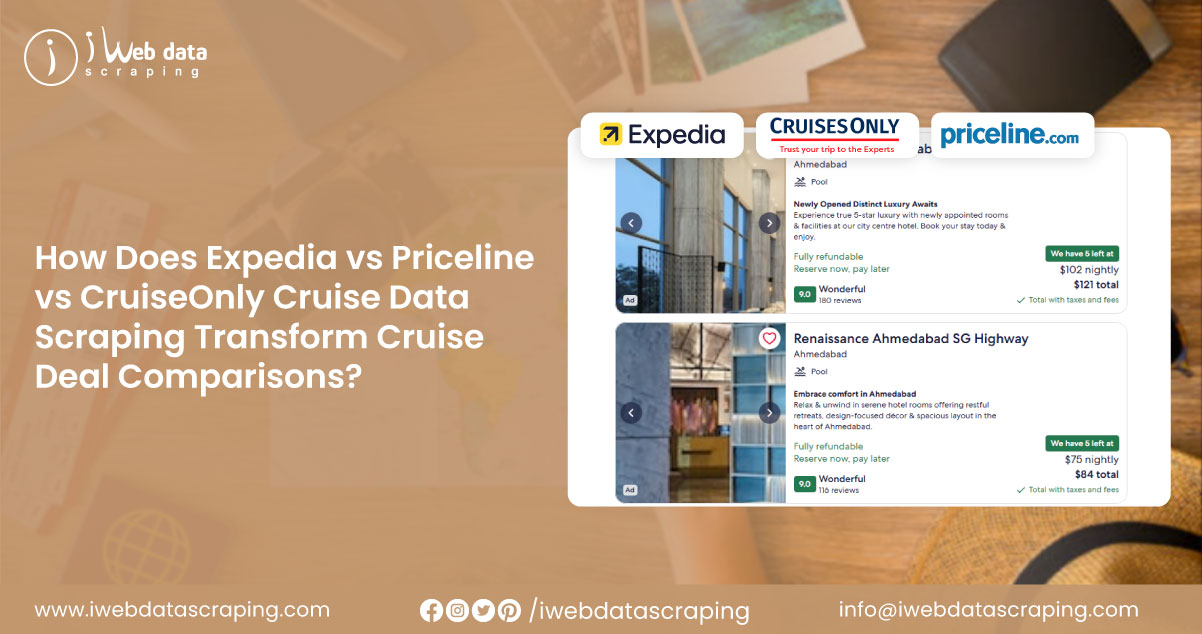
The global cruise industry has become one of the most dynamic segments of the travel and tourism sector. With cruise vacations appealing to families, solo travelers, and luxury seekers alike, competition among booking platforms has intensified. Online travel agencies (OTAs) such as Expedia, Priceline, and CruiseOnly dominate this market, offering travelers extensive options, flexible pricing, and a wide range of destinations. However, for businesses operating in this space, relying only on surface-level information is no longer enough.
Through Expedia vs Priceline vs CruiseOnly cruise data scraping, companies can capture, compare, and analyze critical information such as fares, itineraries, seasonal promotions, and onboard inclusions. This creates a foundation for data-driven strategy development, empowering travel businesses to maximize efficiency, optimize revenue, and remain competitive. Combining these insights with Best cruise deals price comparing data extraction allows companies to build a clearer picture of consumer behavior and platform pricing models. To stay ahead in this ever-changing market, businesses are now turning to Cruise price data scraping to ensure they always have the latest data to inform smart, timely decisions.
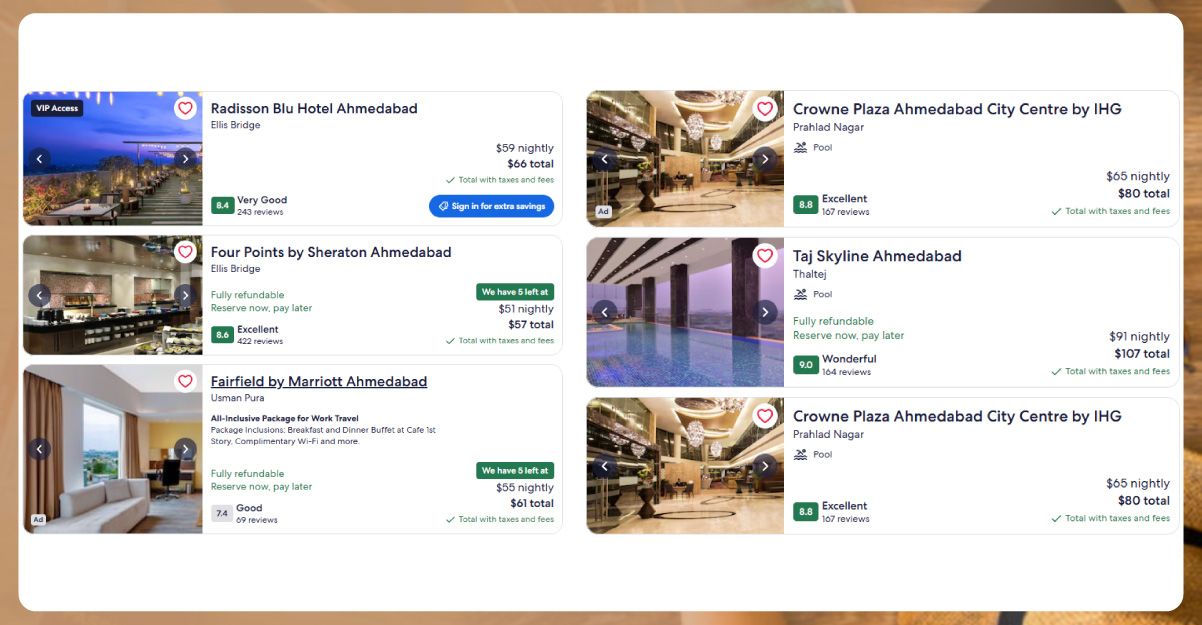
The pricing model for cruises is more complex than that of traditional travel products, such as flights or hotels. Unlike airfares, which fluctuate based on fuel costs and demand, or hotels, which rely heavily on seasonal trends, cruises factor in cabin categories, onboard amenities, destinations, excursions, and inclusions such as food and entertainment.
For instance, a seven-night Caribbean cruise may be priced differently depending on whether it includes drink packages or shore excursions. Without structured data, businesses miss these nuances. With Expedia cruise data scraping, companies can systematically track these variables and identify patterns that may not be apparent through manual browsing. Similarly, Priceline's cruise data scraping helps uncover dynamic pricing adjustments and exclusive promotions that may not be visible on competitor sites. For businesses targeting last-minute travelers, CruiseOnly last-minute deals scraping offers the ability to capture unique, time-sensitive deals that directly influence consumer decisions.

Cruise booking aggregators collect deals from multiple cruise lines and present them in varying formats. The same cruise itinerary might appear on Expedia, Priceline, and CruiseOnly—but each platform highlights different features. For example, Expedia might emphasize loyalty points and bundled packages, while CruiseOnly may spotlight last-minute discounts and onboard credits.
By systematically comparing cruise deal aggregators, businesses can analyze these differences and tailor their offerings to match consumer priorities. More importantly, OTA cruise pricing comparison analysis ensures businesses benchmark their rates against competitors, helping them avoid underpricing or overpricing. Aggregator comparisons also reveal which promotions resonate best with customers—for example, onboard dining credits may outperform small fare reductions in terms of booking conversions.
Expedia is a giant in the online travel space, with global reach and a reputation for bundling services such as flights, hotels, and cruises. For businesses, scraping Expedia cruise deals comparison provides invaluable insights into multi-service packages, seasonal pricing, and promotional bundling strategies.
One of Expedia's unique advantages is its ability to attract international travelers seeking multi-destination packages. This makes its dataset highly valuable for understanding how cruise deals are positioned globally, rather than just in local markets. Travel companies can identify which destinations are being promoted heavily, track how pricing changes closer to departure dates, and monitor how extras like hotel stays are integrated into deals.
Priceline is known for its strong dynamic pricing model and flash deals that appeal to budget-conscious and opportunistic travelers. With dynamic pricing Priceline cruise data scraping, businesses can observe how fares shift based on demand, booking window, and inventory availability.
For example, a cruise might start at $799 per person but fluctuate up to $999 within days if demand spikes. Priceline often offers opaque pricing deals where details are revealed only after booking, providing opportunities for businesses to study traveler risk tolerance and booking patterns. By monitoring these changes, businesses can adjust their pricing strategies to remain competitive without compromising profitability.
CruiseOnly stands out as a specialized OTA that focuses exclusively on cruise vacations. This niche positioning makes it a treasure trove of particular cruise deals. Businesses using real-time CruiseOnly cruise deal monitoring gain the ability to capture unique insights into last-minute price drops, flash sales, and destination-specific offers.
Real-time tracking allows companies to instantly identify when CruiseOnly introduces a special promotion—for example, discounted balcony cabins or onboard credit incentives. With this data, competitors can react by either matching the promotion or emphasizing alternative value propositions. In industries as time-sensitive as travel, where deals change within hours, real-time monitoring provides an unparalleled competitive edge.
While price is a critical factor, itineraries often play a significant role in determining consumer decisions just as much. With cruise itinerary data scraping, businesses can extract details about ports of call, duration, seasonality, and destinations offered across OTAs.
For example, winter months might see a surge in Caribbean bookings, while summer peaks in European cruises. Itinerary-level analysis also helps identify which destinations are trending, such as Alaska cruises in recent years or Mediterranean voyages among younger travelers. By correlating itineraries with price fluctuations, businesses can predict demand spikes and align their marketing strategies accordingly.

The most powerful outcome of cruise data scraping is the creation of structured datasets. Businesses can combine insights from all three OTAs to build Travel & Tourism App Datasets, enabling cross-platform comparisons at scale. These datasets enable travel agencies to identify trends such as regional preferences, seasonal fluctuations, and price sensitivity.
When paired with Travel Intelligence Services, cruise data becomes part of a larger travel ecosystem, helping businesses understand cross-selling opportunities, such as hotel stays before or after cruises. This multi-angle approach transforms basic scraped information into predictive models, equipping companies to anticipate future demand rather than respond to current market trends.
Unlock smarter travel insights—leverage our cruise data scraping solutions today to stay ahead with pricing, itineraries, and real-time deals!
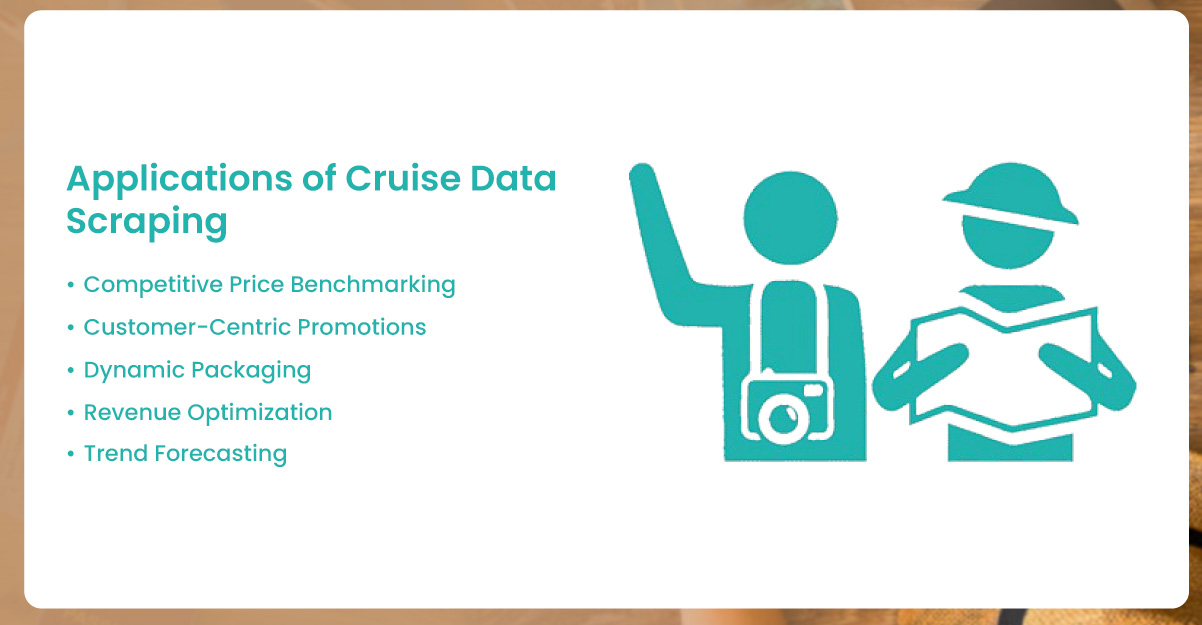
Imagine a travel-tech startup launching a cruise deal comparison platform. By scraping data from Expedia, Priceline, and CruiseOnly, the startup builds a consolidated database of thousands of live offers. Users can view side-by-side comparisons, filter by price, itinerary, or inclusions, and receive notifications about last-minute price drops.
By providing transparency, the startup earns consumer trust and builds loyalty. Behind the scenes, scraped datasets allow the platform to identify high-demand routes, negotiate better deals with cruise lines, and enhance user engagement with tailored recommendations.
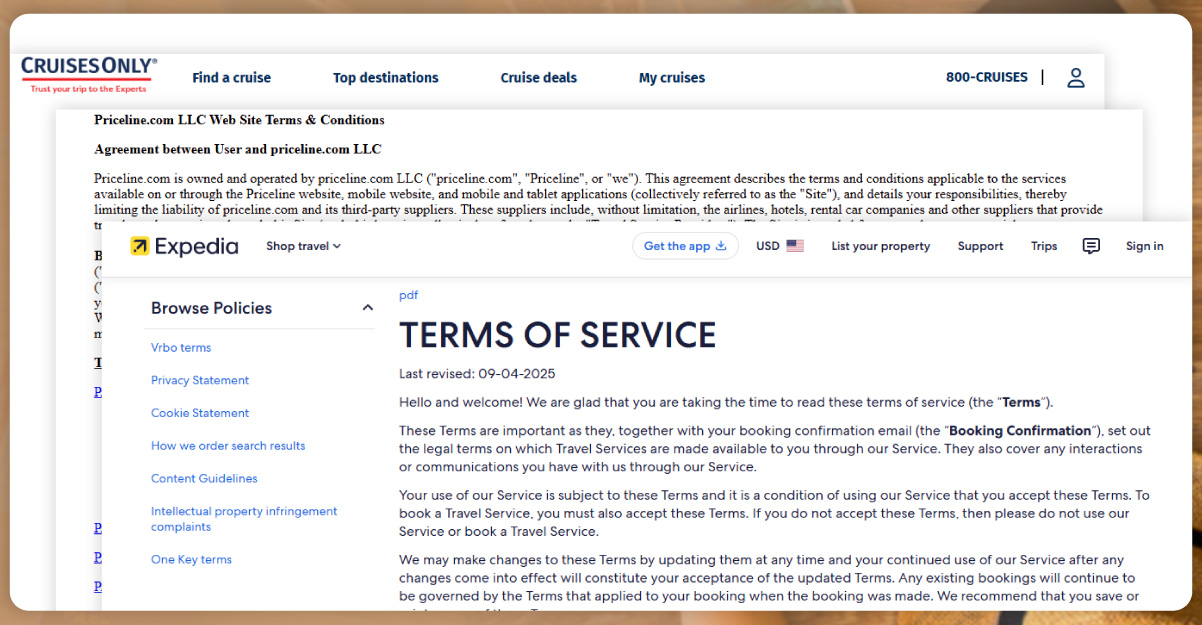
Cruise data scraping must be conducted within the bounds of ethics and law. Travel companies need to respect OTAs' terms of service and ensure compliance with data protection regulations. Businesses should use authorized APIs or partner with scraping providers that prioritize responsible practices. This ensures scalability while avoiding legal complications.
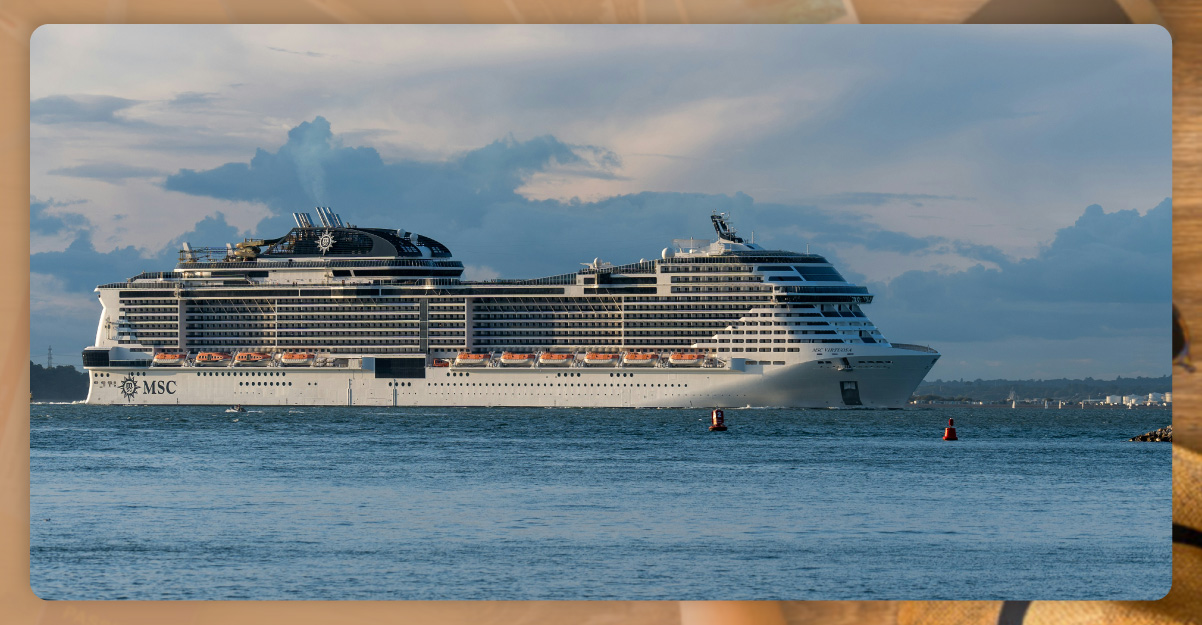
Personalization is rapidly becoming the driving force in the travel industry, with OTAs leveraging artificial intelligence to deliver highly tailored recommendations based on user preferences, past behavior, and real-time demand. To stay competitive, businesses need to go beyond surface-level insights and invest in robust, scalable scraping pipelines that continuously capture and analyze cruise pricing, itineraries, and promotions. Such pipelines ensure timely access to accurate and structured data, empowering companies to identify trends, anticipate customer needs, and react swiftly to market shifts. Those who harness this intelligence can provide real-time, customized offers that improve customer satisfaction and boost loyalty, while businesses relying on outdated methods risk falling behind in an increasingly data-driven and competitive marketplace.
The cruise booking landscape is complex, competitive, and rapidly evolving. To remain relevant, businesses must adopt data-driven decision-making. By adopting Travel Data Extraction Services, companies gain visibility into pricing, promotions, and traveler preferences. It ensures a steady flow of actionable intelligence.
Integrating these insights allows companies to harness the full potential of Travel Data Scraper. For scalability, relying on professional services is essential, and complementing cruise data with Hotel Data Extraction Services adds further value. With a powerful Travel data API and a reliable platform, businesses can transform raw data into meaningful insights that fuel growth and customer satisfaction.
In a marketplace where consumer preferences and pricing shift by the hour, those equipped with intelligent, real-time cruise data will not only compete—they will lead the way.
Experience top-notch web scraping service and mobile app scraping solutions with iWeb Data Scraping. Our skilled team excels in extracting various data sets, including retail store locations and beyond. Connect with us today to learn how our customized services can address your unique project needs, delivering the highest efficiency and dependability for all your data requirements.